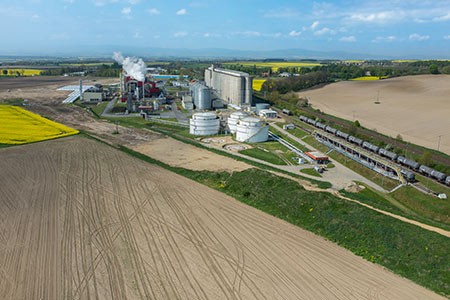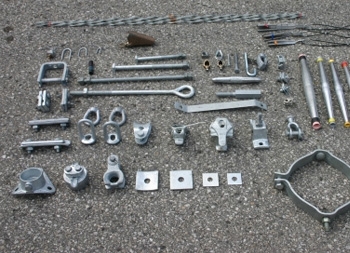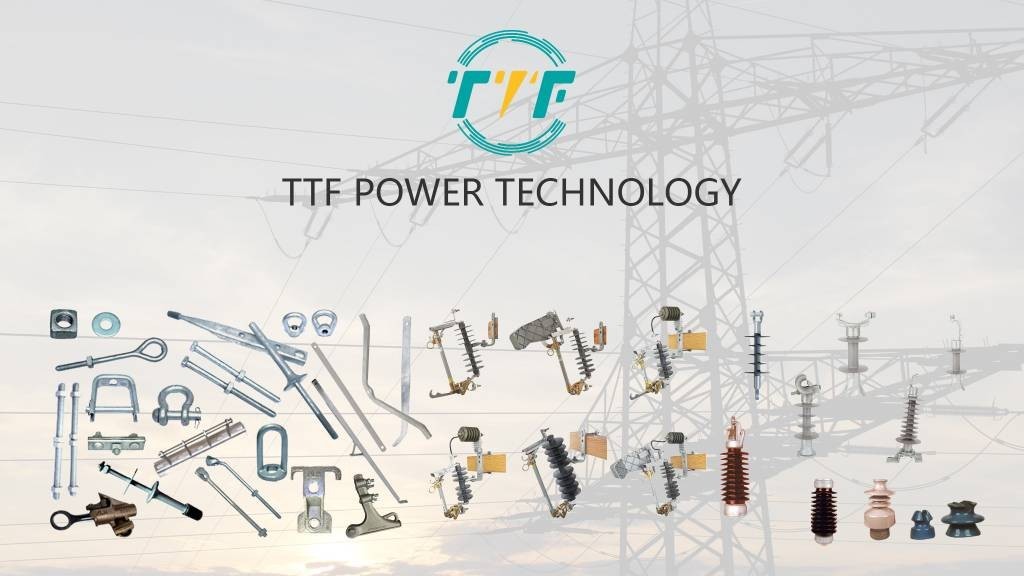
In recent years, biofuels have become a significant element of South America’s energy strategy. This arises from the region’s rich agricultural resources and the global transition towards renewable energy. For example, Brazil’s substantial sugarcane production serves as a primary feedstock for ethanol. Similarly, Argentina’s soybean farming positions biodiesel as a suitable component of the energy portfolio. The adoption of biofuels plays a crucial role in mitigating carbon emissions and decreasing dependence on fossil fuels. Ethanol derived from sugarcane produces lower carbon emissions than corn-based ethanol. Brazilian ethanol is capable of reducing greenhouse gas emissions by as much as 90% compared to gasoline. This positions it as one of the most sustainable biofuels available. Additionally, the use of pole line hardware is essential for ensuring the efficiency and reliability of biofuel production in South America.
High-quality pole line hardware guarantees a consistent power supply to biofuel production facilities. This reduces downtime and enhances production processes. Furthermore, biofuels present an opportunity for nations to lessen their reliance on imported fossil fuels and improve energy security. South America’s robust agricultural sector lays a solid foundation for the production of biofuel feedstock. This is by utilizing existing crops such as sugarcane, soybeans, and palm oil. As countries continue to put in place stringent emissions targets, South America has the potential to emerge as a key supplier of sustainable biofuels. How do biofuels and pole line hardware enhance biofuel production and efficiency in South America?
The significance of pole line hardware in biofuels production within South America
Pole line hardware consists of components that support and maintain the infrastructure for power distribution. In the context of biofuel production, this hardware is essential for sustaining the energy framework required to operate biofuel production facilities. Typical components include poles, crossarms, insulators, clamps, and fasteners. They contribute to enhancing efficiency and optimizing supply chains across South America. The following outlines the roles of pole line hardware in biofuel production facilities.

- Facilitating energy distribution for biofuel production facilities – the process of biofuel production demands much energy. Pole line hardware plays a critical role in ensuring efficient energy distribution. This is especially true for power mills, refineries, and processing plants. Additionally, this hardware aids in the integration of renewable energy sources, such as solar and wind, into the grid.
- Promoting rural electrification in agricultural areas – it is vital to establish power lines that provide reliable energy access to agricultural regions. Pole line hardware is instrumental in extending the electrical grid to rural areas. High-quality pole line hardware reduces the risk of power interruptions. This helps enhance the efficiency of biofuel production.
- Streamlining transportation and distribution of biofuels – dependable power lines are crucial for the effective transportation and distribution of biofuels. This hardware ensures that the necessary electricity is supplied to operate pipelines efficiently.
- Improving sustainability and energy efficiency – pole line hardware sends energy efficiently. Utilizing high-grade pole line hardware minimizes energy loss, contributing to a more sustainable and cost-effective biofuel production process.
The use of biofuels in reducing greenhouse gas emissions in South America
By substituting fossil fuels, the region contributes to the reduction of carbon emissions. This is especially in alignment with the objectives of the Paris Agreement. Brazil’s prominence in ethanol production and Argentina’s leadership in biodiesel position South America as a frontrunner in the renewable energy landscape. Additionally, pole line hardware serves as a vital support system for maintaining the energy infrastructure necessary for ongoing biofuel production. The role of biofuels is critical not only in reducing environmental impacts but also in promoting energy sustainability. The following outlines the ways in which biofuels ease greenhouse gas reduction in South America.

- Decreased carbon intensity – biofuels such as ethanol and biodiesel exhibit lower carbon emissions compared to conventional fossil fuels. This is due to the renewable characteristics of their feedstock and the inherent carbon cycle.
- Carbon sequestration during cultivation – the growth of biofuel feedstock contributes to carbon sequestration. This mitigates some emissions associated with biofuel production and consumption.
- Reduced reliance on fossil fuels – the adoption of biofuels leads to a reduction in the combustion of gasoline and diesel. These are primary sources of carbon emissions. The biofuel initiatives in South America effectively displace large quantities of fossil fuels.
- Enhanced energy efficiency and integration of renewable power – the production of biofuels in South America has achieved significant energy efficiency. This thereby decreases the demand for fossil-fuel-based electricity, resulting in lower emissions.
- Advancement of global climate objectives – biofuels are instrumental in fulfilling the region’s climate commitments. This is by lessening dependence on fossil fuels and encouraging the adoption of low-carbon alternatives.
